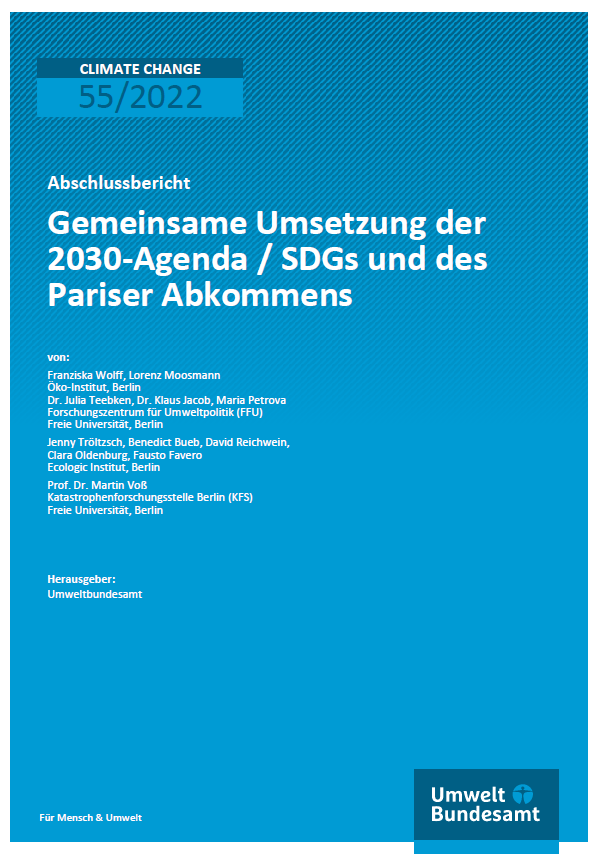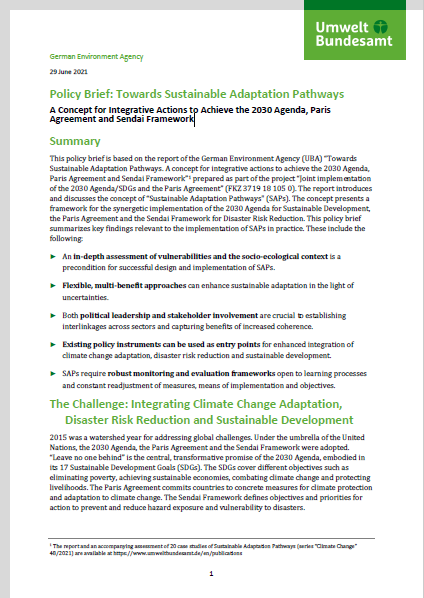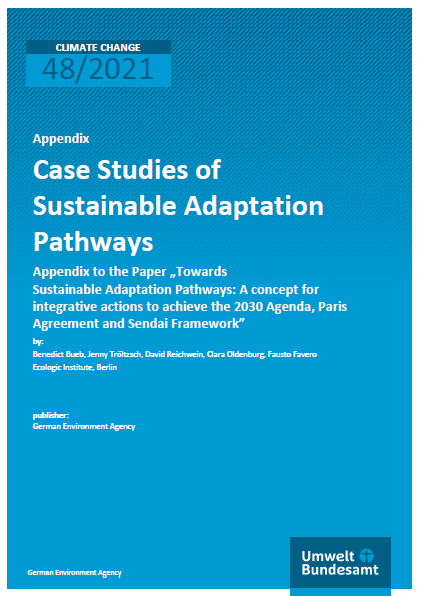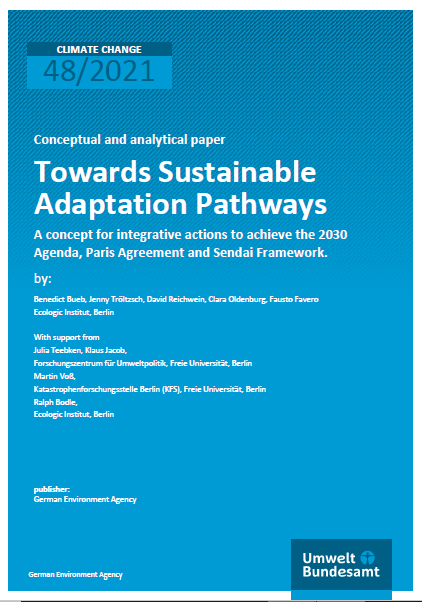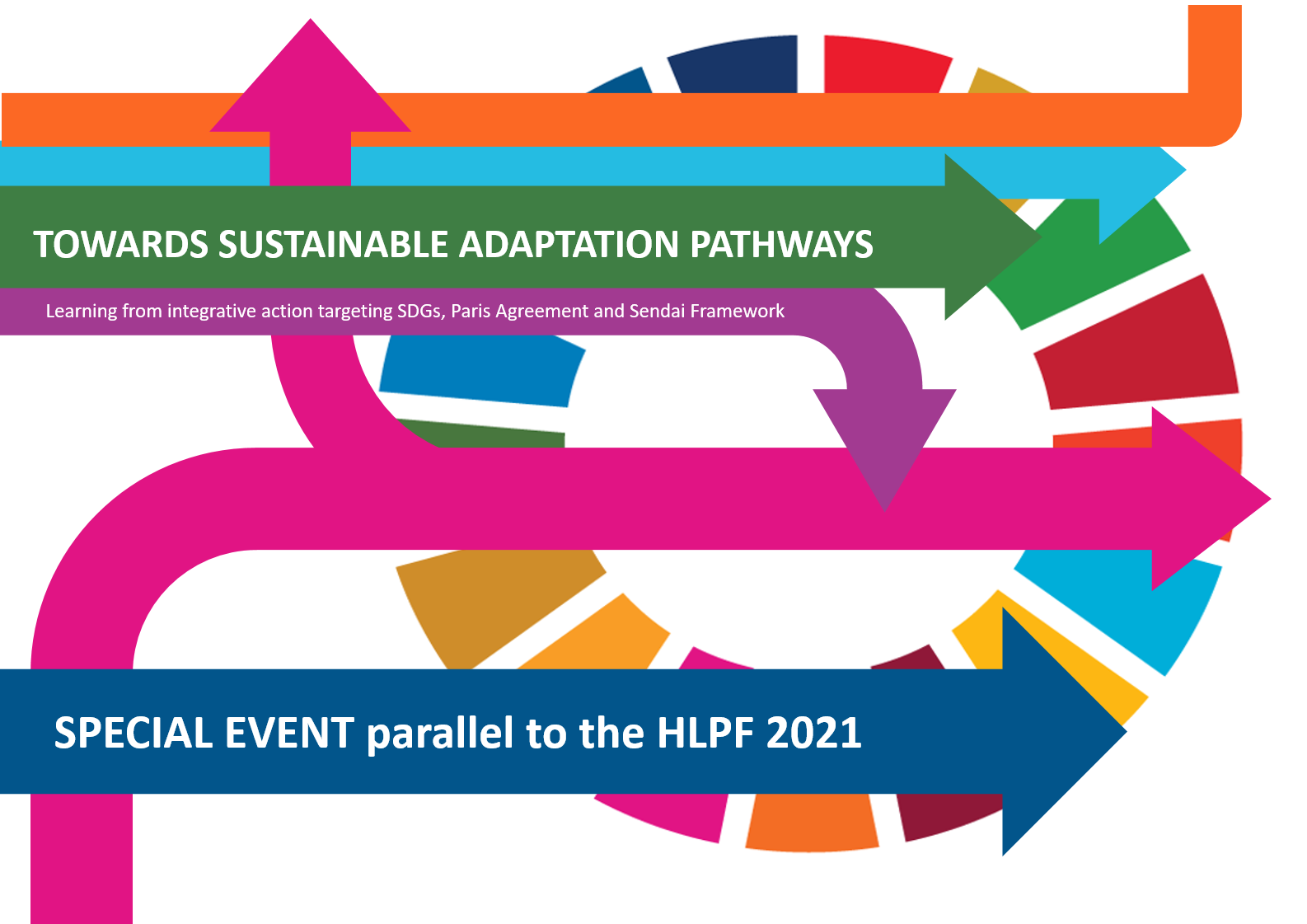How to link the goals of the Agenda 2030, the Paris Convention, the Sendai Framework for Disaster Reduction and climate adaptation policies? The project examines synergies and challenges in the joint implementation of these processes. To this end, several papers, among others on "sustainable adaptation pathways", are prepared. These present factors for successful implementation, examples of good practice and short country studies. The results are discussed with the expert audience at a seminar and a side event of the High Level Political Forum (HLPF) at the United Nations in New York.
How to strengthen links between sustainable development, climate protection and adaptation?
In 2015, several landmark international policy documents were adopted, which together form an ambitious framework for sustainable development, climate policy and disaster risk reduction. With the 2030 Agenda for Sustainable Development, the United Nations has defined 17 Sustainable Development Goals (SDGs) addressing issues ranging from hunger and poverty reduction, climate protection and nature conservation to peace and justice.
The Paris Agreement marks the first time that both industrialized and developing countries have committed themselves to the implementation of measures for climate protection and adaptation to climate change and to limiting global warming to 1.5 degrees Celsius. The Sendai Framework for Disaster Reduction, also adopted in 2015, defines goals and priorities for action for the period up to 2030 to reduce existing vulnerabilities to disasters and reduce the risk of future disasters.
Five years after its adoption, the question arises how to strengthen the implementation of these processes. One approach is to exploit the synergies and co-benefits between the processes and to improve their coordination and the cooperation of the actors involved.
Project objectives and activities
In this context, the project pursues to:
- Identify synergies, challenges and co-benefit approaches for a joint implementation of the above processes;
- Define and illustrate "sustainable adaptation pathways" and their potential for an integrated implementation of these processes;
- Supporting the technical debate before and during the United Nations’ High Level Political Forum for Sustainable Development (HLPF) 2021.
In order to achieve these objectives, the project team develops several discussion and policy papers. These papers analyze potential sustainable development pathways for the systematic integration of measures for the implementation of SDGs, climate adaptation and disaster risk management. Special attention is paid to the potential of transformative approaches to climate adaptation and the presentation of practical examples. In order to discuss and disseminate the (interim) results, events are held in Berlin (expert seminar) and New York (side event at HLPF 2021).
Project partners and role of Ecologic Institute
The project funded by the German Environment Agency is led by Öko-Institut and is being carried out in cooperation with the Environmental Policy Research Centre (FFU), the Disaster Research Unit (DRU) (both Freie Universität Berlin) and Ecologic Institute.
Within the project, Ecologic Institute is leading the development of a policy paper and a short paper on "Sustainable Adaptation Pathways". In addition, Ecologic Institute conceptualizes and organizes the side event at the HLPF 2021.



